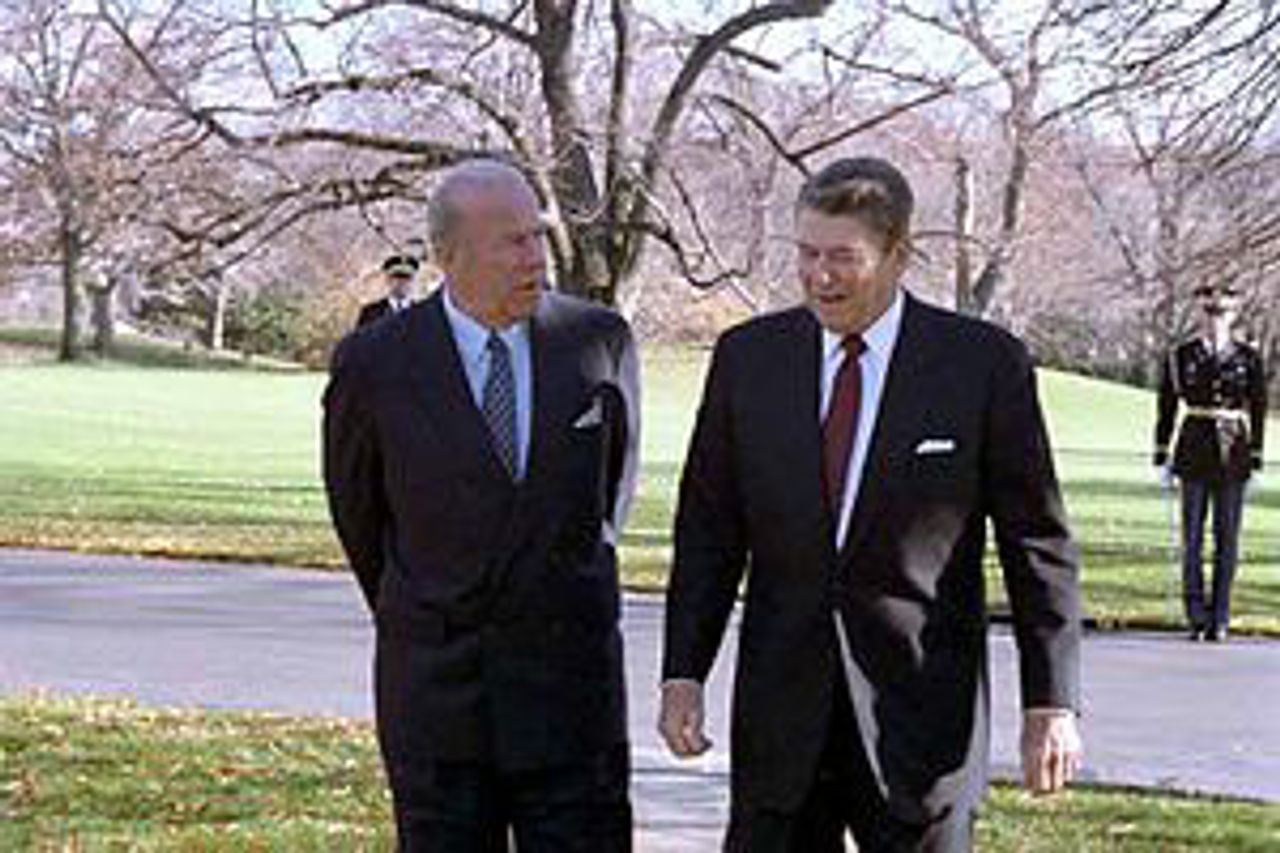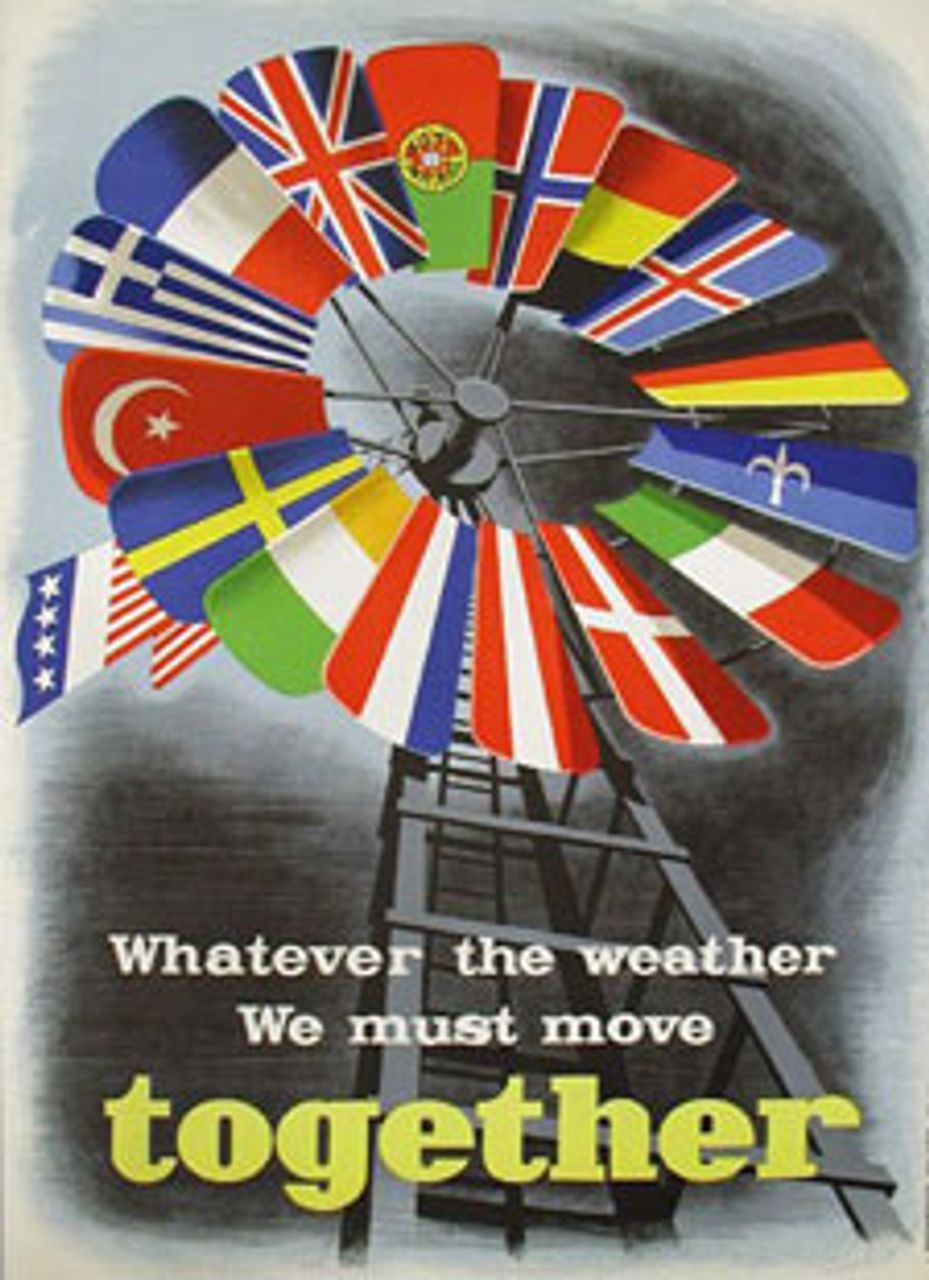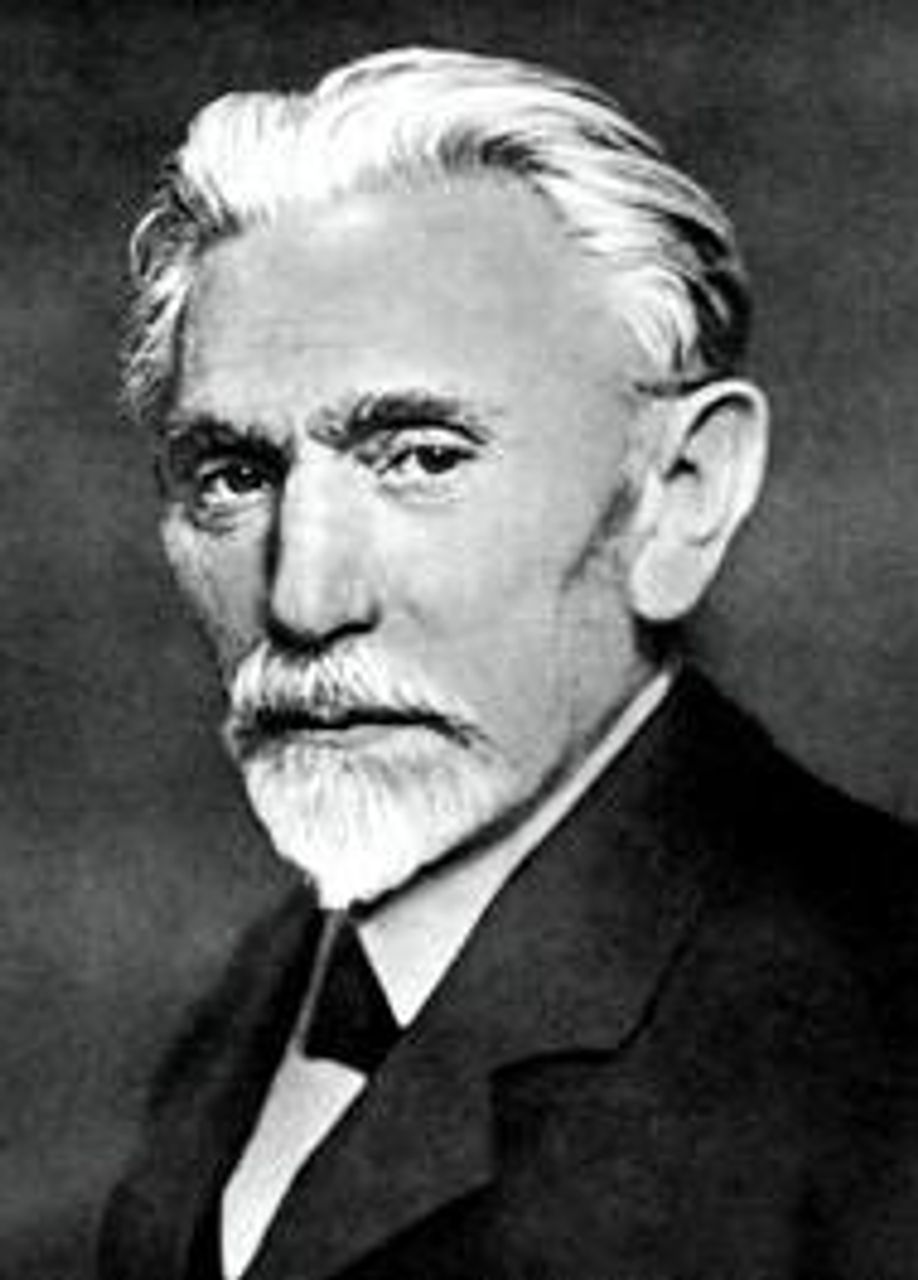This Week in History provides brief synopses of important historical events whose anniversaries fall this week.
25 Years Ago | 50 Years Ago | 75 Years Ago | 100 Years Ago
25 years ago: Reagan admits to arms deals with Iran
 Reagan and Sec. of State Shultz
Reagan and Sec. of State ShultzOn November 13, 1986, President Ronald Reagan told a national television audience that the US had secretly sent weapons to Iran, which was in the sixth year of a bitter war with Saddam Hussein’s Iraq. It was the first admission from Reagan that the sales took place after a week of stonewalling in the wake of the deal’s exposure by a Lebanese newspaper.
Reagan’s aim was to contain the revelations before they lifted the lid on what was in reality a far greater criminal enterprise run out of the White House, including the laundering of the money procured in the illegal arms sales to fund Contra death squads in Nicaragua, also in violation of the law. Reagan spoke of “false rumors and erroneous reports” and warned of dangers to clandestine US operations. He insisted that the weapons were not used to secure the release of hostages and that the aim was in part to cultivate pro-Western elements in the Iranian theocracy in preparation for the passing of Ayatollah Ruhollah Khomeini.
Speaking in Chicago that week, Israeli Foreign Minister Shimon Peres refused to answer questions on Israel’s role in the deals. In Italy, Prime Minister Bettino Craxi announced an investigation into the US military’s secret use of Italian ports for the trade to Iran, which was run by Israeli and South African intermediaries. Spanish ports were also reportedly used as distribution centers. An executive with the Danish Seamen’s Union reported that his organization was aware of the shipment of massive quantities of US armaments to Iran “far beyond the normal shipments of arms dealers and smugglers.”
Reagan’s admission of the sales came amidst a crescendo of ruling class criticism—from Europe, the Arab countries, in the US, and within the administration itself—that the operation threatened the legitimacy of the US-led world imperialist order. Aides to Secretary of State George Shultz, speaking anonymously to reporters, said that Reagan had first signed the order for the sales without the knowledge of the Departments of State and Defense, and that the operation was run by the National Security Council. Right-wing Senator Barry Goldwater of Arizona called the decision “a dreadful mistake, probably one of the major mistakes the United States has ever made in foreign policy.”
50 years ago: OECD calls for 50 percent GNP growth by 1970
 A poster promoting the Marshall
A poster promoting the MarshallPlan in Europe
In advance of a meeting scheduled in Paris the next week, members the Organization for Economic Cooperation and Development (OECD) announced on November 11 that they would seek an agreement calling for a 50 percent increase in economic output by 1970 as a means of outstripping the rapid growth of the Soviet bloc economies. The OECD, then informally known as the “Atlantic community,” included the Western European states and the US and Canada.
The target for gross national product (GNP) growth, equivalent to between 4.2 percent and 4.6 percent per year, reflected the confidence resulting from the rapid year-over-year economic growth that began in the late 1940s after World War II. The post-war boom was based on the rebuilding of the European and Japanese economies with “Fordist” US production methods, the infusion of American cash through the Marshall Plan, and the role of the US dollar as a stable international reserve currency.
Fundamental problems in the global capitalist economy already threatened this order. The plan foresaw a strong increase in US GNP, which then still accounted for 60 percent of the OECD total. Yet economic growth in Western Europe had averaged 4.2 percent to 4.6 percent per year in the 1950s—a figure pulled down markedly by the United Kingdom’s annual growth rate of 2.4 percent—while growth in the US economy had been at about 2.3 percent per year between 1955 and 1960. Growth rates in Japan were higher still than those of the Europe.
The growth of the European and Japanese economies was also threatening the financial system based on dollar-gold convertibility at $35 per ounce, known as the Bretton Woods system. This was underscored one year earlier when panic buying of gold pushed its price up to $40 per ounce, which in turn led to the formation of the eight-nation combination of central banks known as the London Gold Pool, formed to defend the Bretton Woods system.
75 years ago: Stalin’s agents steal Trotsky’s archive in Paris
 Leon Sedov
Leon SedovIn the early hours of the 7th of November, 1936, Soviet agents broke into the International Institute of Social History in Paris and stole a portion of Leon Trotsky’s recently deposited archives. Occupying an adjacent property to the Institute at no.7 rue de Michelet, Stalin’s agents cut through the connecting walls, entered the property and stole Trotsky’s historical papers.
At the time of the burglary, Trotsky was being held under house arrest, essentially incommunicado, by the Norwegian government. He had previously instructed his son Leon Sedov, responsible for the European operations of the Fourth International, to divide the archives in his possession into three parts and deposit one section with the International Institute of Social History. Weighing some 80 kilos, Trotsky’s archival material contained irreplaceable documents relating to the early history of the Soviet Union and the leaders of the October 1917 Revolution.
The director of the Institute was the Russian Menshevik Boris Nicolaevsky, who had loaned books to both Trotsky and Sedov during their periods of exile in France. Nicolaevsky was said to be distraught at the news of the break-in. The Institute was also home to the archival collection of the Second International and other documents relating to the development of Marxism in Russia.
Stalin aimed to undermine Trotsky’s ability to counter the false accusations and pseudo-evidence presented at the Moscow show trials of Old Bolsheviks, among whom Trotsky was the leading target. The material contained in the archive refuted the crude Stalinist slanders.
The Soviet GPU had managed to infiltrate Sedov’s Paris circle with the agent Mark Zborowski, whose spy name was “Etienne.” Zborowski was one of only four people, including Sedov, who knew about the transfer of the archive to the Nicolaevsky Institute. Zborowski would later play the critical role in setting up the murders by Stalinist agents of Sedov and Trotsky’s supporters Erwin Wolf, Rudolph Klement and Ignace Reiss.
100 years ago: Bitter debate over Franco-German Convention
 August Bebel
August BebelOn November 9, 1911, a heated debate in the German Reichstag exposed the bitterness and frustration in the ruling elite over the signing of the Franco-German Convention the previous week. Germany's acceptance of the agreement, which established Morocco as a French protectorate, was precipitated by a financial crisis at home and was widely viewed as a setback for Germany's imperialist ambitions.
During the debate, Crown Prince Frederick William openly applauded the right-wing Ernst von Heydebrand, a representative of the landed gentry, who denounced the convention, declaring that Germany had been fobbed off with worthless territory in the Congo. Bassermann, leader of the National Liberals, declared that by signing the agreement Germany “had struck herself off the list of the great powers.”
German Chancellor Bethmann Hollweg, who had the support of the Kaiser, defended the agreement and denounced the saber-rattling, but also declared that Germany “will know how to draw the sword when the time comes.”
By-election results the preceding year had frightened ruling circles with the prospect of increased support for the German Social Democratic Party (SPD) in the forthcoming Reichstag elections. In an official memo prior to the crisis, Foreign Minister Kiderlen-Waechter linked an aggressive, militarist policy in Morocco to the promotion of nationalist sentiment in opposition to the SPD’s class politics.
In a prophetic warning of the consequences of rising inter-imperialist rivalries and militarism, SPD leader August Bebel declared: “Both sides are producing arms and will continue to do so… Then comes the catastrophe. Then the great mobilization will take place in Europe. Sixteen to eighteen million men, the flower of the various nations, armed with the best weapons of death, will fight each other on the battlefield… You are leading us to catastrophe. You will reap what you have sown.”
